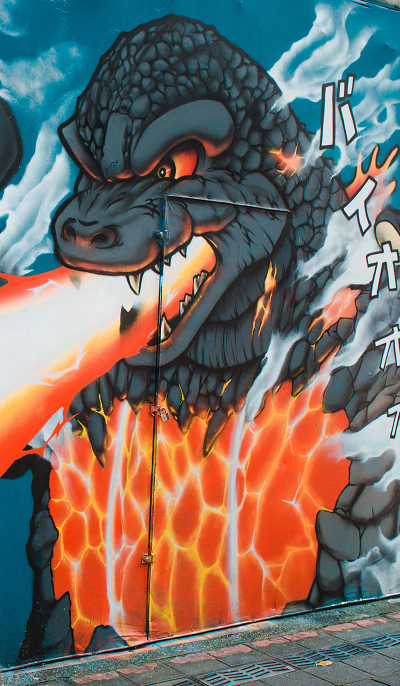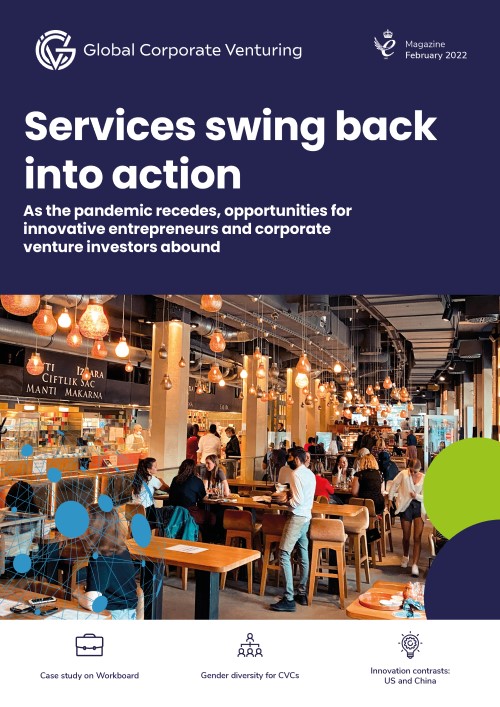February 2022 editorial by James Mawson, editor-in-chief, Global Corporate Venturing
Welcome to the Lunar New Year. The year of the water tiger in China and east Asia promises much and strength and bravery will undoubtedly be much in demand in all walks of life.
Financially, too, as investors seemed to try to sell their entire portfolio last year during the unprecedented boom period for flotations (IPOs), and mergers and acquisitions (M&A).
Global takeovers rocketed to nearly $5tn in 2021, according to PitchBook’s annual global M&A report. Nearly 1,500 companies also had IPOs, including special purpose acquisition companies (Spacs), worldwide last year, raising almost $500bn. That was about double the number of deals and capital raised in 2020.
Dealmakers remain hot for the right assets. If Microsoft’s $68bn cash deal for gaming group Activision is approved by regulators – no small if – it will be the former’s biggest acquisition ever, with a price tag higher than its past three purchases combined.
But they will have to decide if stock market falls last month presage greater challenges ahead and whether to stick or twist and try and sell the remainder now or hold on.
Corporations are hurrying to spin off assets, such as Tencent’s sales of stock in JD.com and Sea, Thyssenkrupp’s listing of its hydrogen subsidiary or LG Energy Solution, which is now South Korea’s second-most valuable firm. Shares in the electric car battery maker, spun out of conglomerate LG, jumped 68% on its trading debut last month.
The other challenge is reinvestment. Where and how to find assets remains difficult.
Hedge and mutual fund investors, such as BlackRock and Tiger Global, could see the public markets’ downturn as a better buying opportunity than highly-valued private peers. Others, however, are continuing to invest. SoftBank struck nearly a dozen large deals in the final week of January.
And thesis-driven investors are building portfolios around technologies.

In Germany, state and corporate-backed High-Tech Gruenderfonds (HTGF) has targeted quantum and struck deals inside and out the country in the past year, including local spinouts HQS Quantum Simulations and Kiutra, as well as TU Delft’s QphoX, Switzerland’s Qnami, and University of Sheffield spinout Aegiq in the UK.
Others are going a little later to lead rounds for portfolio companies they can potentially partner with. Germany-based Bayer co-led Celino Biotech’s $80m series A round and reinvested in Metagenomi’s $175m B round, and also partnered with Mammoth Biosciences in a reported $1bn deal to aid Bayer’s new cell and gene therapy platform.
The alternative is venture building for internal or external startups or finding other ways to buy or sell and partner with them. This is hard to do and scale, whether in healthcare or technology. (GCV is preparing its report into incubators and incentives and insights under Chatham House rule are welcome to jmawson@globalventuring.com)
The Diem Association, a Meta-backed consortium that aimed to bring a novel cryptocurrency to market, said last month it would sell off its technology to a small California bank for about $200m, the Wall Street Journal reported. Silvergate Capital, which planned to issue Diem’s coin, will take ownership of intellectual property from Meta, the holding company for the Facebook, WhatsApp and Instagram media assets.
The big question for all is what happens to liquidity as the era of free money effectively starts coming to an end from next month as the US Federal Reserve is expected to start increasing interest rates.
The last time that the Fed raised rates and reduced its balance sheet simultaneously was four years ago in 2018.
This could put pressure on the near-1,000 private companies valued around at least $1bn (so-called unicorns) as well as those that have escaped on to the public markets in the bubble times.
Of the 133 publicly traded ex-unicorn startups that Jeffrey Funk analysed, 23 now have greater than $1bn in cumulative losses and another 36 have losses greater than $500m. A similar percentage or probably higher of unicorns are also loss-making and hence reliant on equity rounds to cover the cash burn.
The hope, of course, is that more of these highly-valued companies can replicate electric car maker Tesla’s (and before that Amazon’s) success in moving from losses to annual profit. Tesla’s jump to $5.5bn profit last year was more than the combined losses it suffered in its first nine years as a public company.
Many large companies have been actively acquiring unicorns (among other VC-backed companies) and if they stop and the investment and IPO cycle hits the brakes then a negative price spiral and down rounds could quickly unwind the gains.
Ilya Strebulaev, professor at Stanford Graduate School of Business teaching Venture Capital and Private Equity, took a sample of 396 exited US unicorns and found 135 companies (34%) were acquired.
The majority of these acquirers were public companies, responsible for 105 (78%) of all unicorn acquisitions. Cisco and Alphabet each bought five unicorns, while Meta acquired Oculus VR, Instagram, WhatsApp and CTRL-labs.
Overall, however, regardless of shifts in fortune it is clear venture capital has, as Sebastian Mallaby’s excellent new book, The Power Law, gone through a paradigm shift to become the “third great institution of modern capitalism,” filling a role distinct from the stock market and the corporation, and “a pillar of national power”.
China and the US as well as practically all other countries are trying to find and unlock more of it and effect the governance and support to capture its benefits while limiting its more pernicious outcomes. As in the battle between giants Mothra and Godzilla, victory will come to those best able to form alliances and the right networks.











